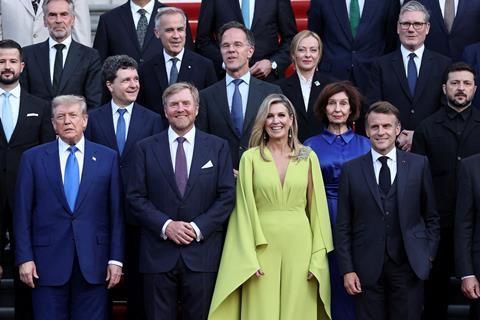Western societal and political systems were built on Christian principles, but few Western leaders now profess even a nominal Christian faith. George Pitcher wonders when we’ll realise what we’re missing

Barely a month seems to pass without some survey telling us that church attendance is in freefall, the irreligious now outnumber the faithful, that there will be a Muslim majority in the UK before all of us currently alive are dead, or that most educated people are atheist.
Those of us with some sense of history don’t want to sound complacent, so we refrain from pointing out that we’ve had it worse. We came through the Reformation in the 17th century and the Enlightenment in the 18th, for instance.
But “it could be worse” is never a satisfactory comfort, far less a rallying call. Better, perhaps, to point away from the tired old relics of empire towards the southern hemisphere, where the faithful prosper, if in many cases in need of their own reformations. There we can find the cradle of hope.
Missing in action
That is still distracting attention however from the parlous state of religious observance in what we used to patronisingly call the Civilised West. The most alarming aspect of which, for me, is the almost total lack of Christian leaders.
For once, I don’t mean leaders of the Church, who are notable in their absence (in the reformed traditions at any rate – Pope Leo XIV is a very encouraging prospect). I mean world leaders who professes the Christian faith on which our politics and society were founded. Where are they? We may not reasonably expect them to be regularly on their knees, but it’s hard to even identify any that we might call culturally Christian, self-confessedly steeped in the ethos and heritage of the faith.
We don’t, please, need to dwell on President Donald Trump. Those with a brain will readily acknowledge that he doesn’t have one. Faith, that is. No amount of posing with a Bible outside a church as Washington riots or praying with the Evangelical Right in exchange for votes, can conceal his arrant contempt for softies who speak of loving our neighbours. Name your favourite Bible verse, Mr President? Nada.
Enough of him. The American past truly feels a foreign country, where we did things very differently. Barack Obama, with his softly spoken public morality, that compass clutched firmly in the palm of his hand. George W Bush was rumoured to have prayed with then-British PM Tony Blair before the Iraq war (although admittedly that didn’t turn out too well).
We’ve had it worse. We came through the Reformation in the 17th century and the Enlightenment
It’s difficult to think of an American president who didn’t check in with their faith. Joe Biden and John F Kennedy were both observant Roman Catholics. Bill Clinton and Jimmy Carter, Southern Baptists. Ronald Reagan and Dwight Eisenhower, Presbyterians. Frankin Roosevelt and George Washington, Episcopalians. Even sceptic Abraham Lincoln was a biblical scholar. For all their faults, none was the golden bull we have now.
In the UK, prime minister Sir Keir Starmer is an atheist, a marked change from his predecessors. Rishi Sunak is a Hindu. Liz Truss and Boris Johnson don’t count, in so many ways. Where is the quiet Christian ethos of Theresa May, Gordon Brown, Margaret Thatcher or Harold Macmillan? Even Blair, secretly Anglican in office, Roman Catholic thereafter. Vain warmongers can be saved too.
President Emmanuel Macron of France is agnostic; his opposite number in Spain, Pedro Sanchez, is an outspoken atheist. German chancellor Friedrich Merz continues the Christian-Democratic tradition of Angela Merkel, but it feels rather like he’s holding the line. Especially when Georgia Meloni in Italy seems to be the kind of Catholic who puts the father in fatherland, rather than in holy father.
Firm foundations
Perhaps there is cause for hope. Among my own friends, there are many who have no faith – who would even say they’d like to have it but can’t find a way to do so – who will also readily admit that they’re very glad it’s there, among us. Its social cohesiveness, pastoral care, witness to the joy and sorrow of human lives. It may very well be that some of this is making Gen Z more than curious.
But there is still a secular fashion, and politicians need to be secular if they are to garner today’s voters. Then again, Christian leaders have previously been respected for their conscience, even when their faith was spoken softly and even by those electors who didn’t share it.
Such leaders and voters recognised that Western societies and political systems are built on Christian foundations. Our systems of law; respect for and protection of the individual; blind and impartial justice. Universal health provision and education; literacy and defence of childhood. The nurture of family as the societal nucleus. The primacy of love over hate; welcome of the stranger. They know where all this stuff comes from, even if they decline to worship it.
Truly, we don’t know what we’ve got until it’s gone.






































No comments yet